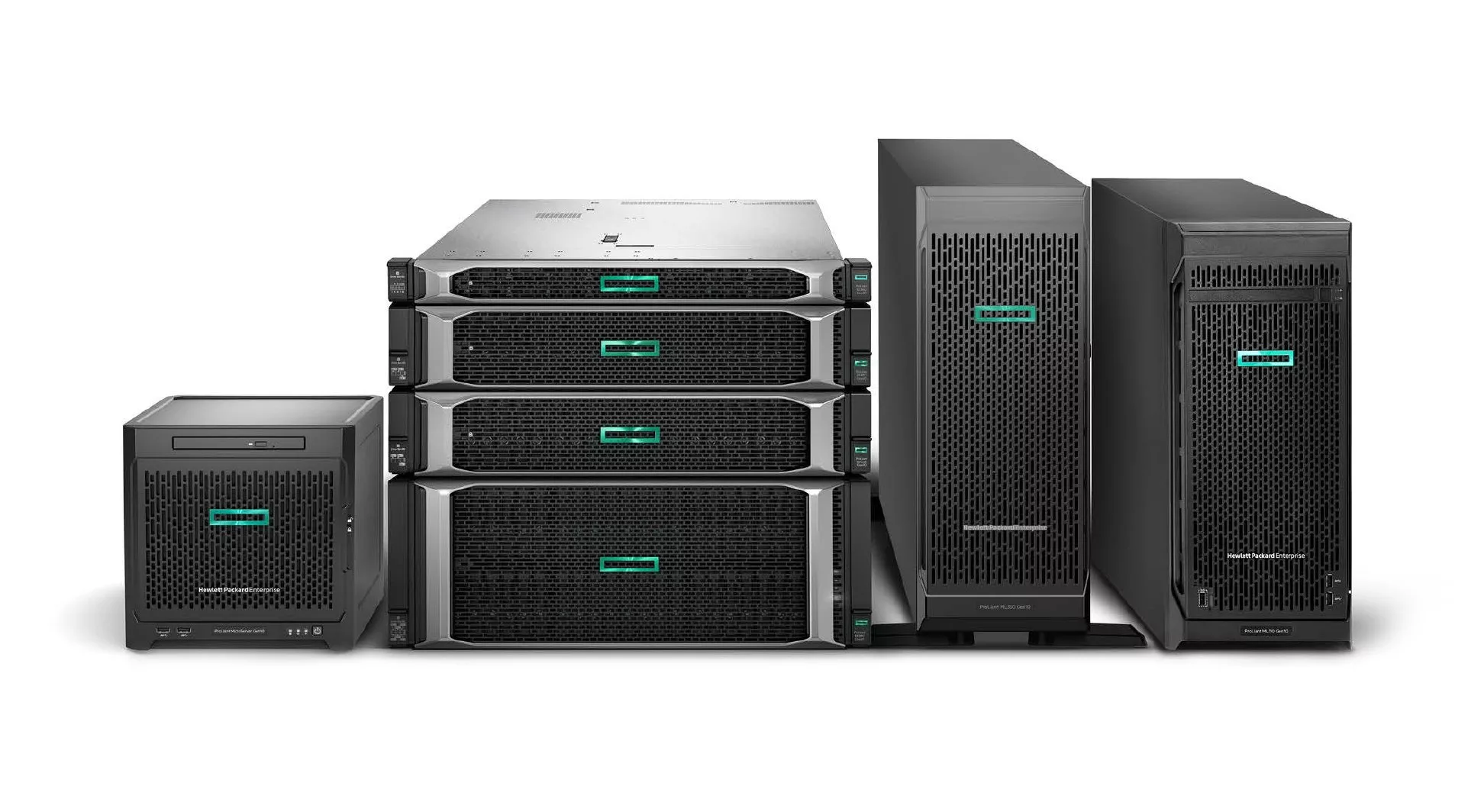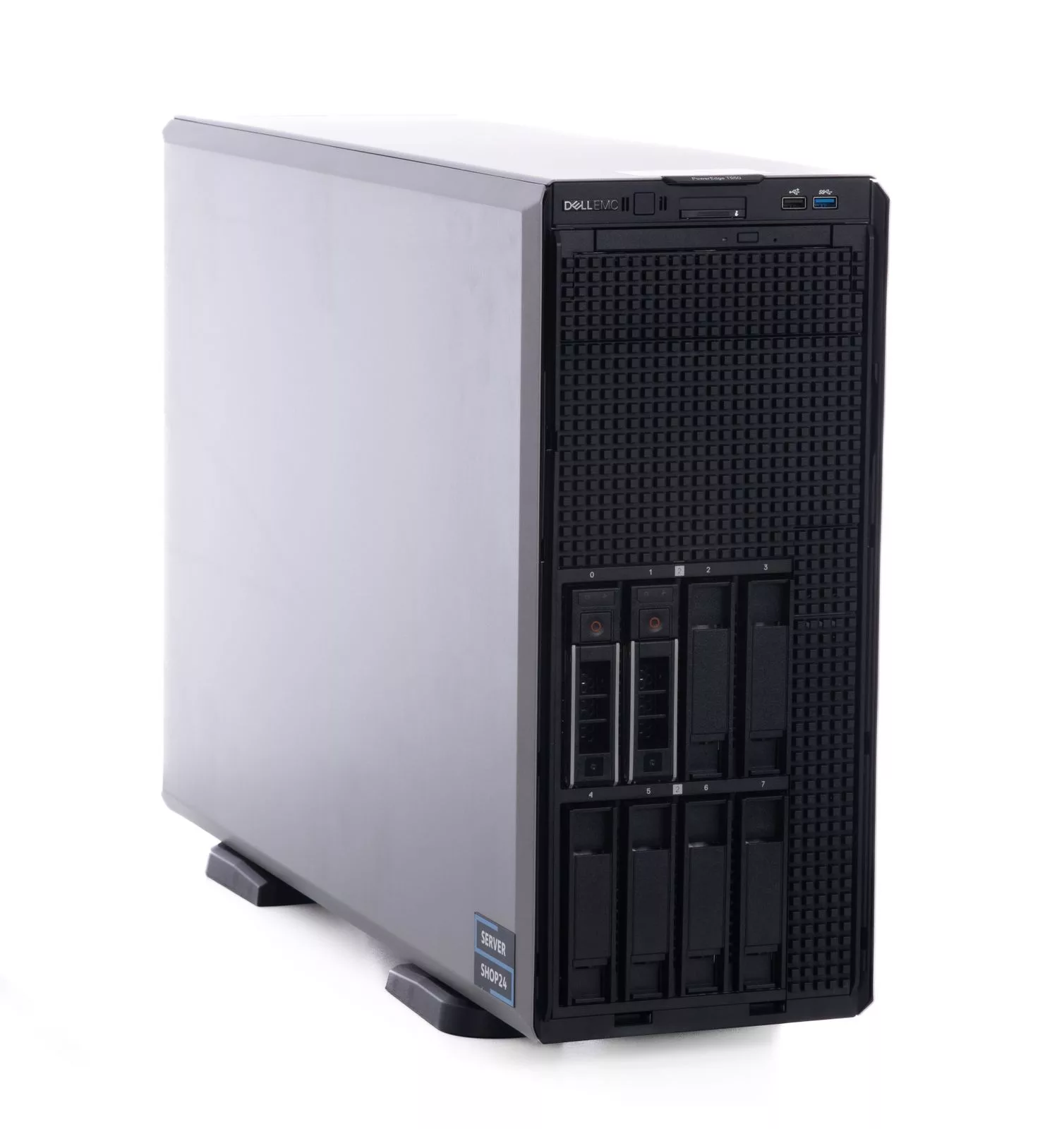Dell PowerEdge vs. HPE ProLiant: Battle of the Server Giants: In the ever-evolving world of enterprise IT infrastructure, choosing the right server for your organization is a crucial decision. Two of the most prominent contenders in the server market are Dell PowerEdge and HPE ProLiant. These giants have been competing for years, offering a wide range of server solutions to meet the diverse needs of businesses. In this article, we will compare Dell PowerEdge and HPE ProLiant servers in various aspects to help you make an informed decision.

Dell PowerEdge vs. HPE ProLiant
-
Performance and Scalability
Dell PowerEdge:
Dell PowerEdge servers are known for their robust performance and scalability options. With a wide selection of processor choices, memory configurations, and storage options, Dell provides the flexibility to tailor your server to your specific workload requirements. The PowerEdge line includes tower, rack, and blade servers, catering to a broad spectrum of use cases.
HPE ProLiant:
HPE ProLiant servers are also renowned for their performance and scalability. HPE offers a similar range of customization options, allowing you to build servers that suit your needs precisely. ProLiant servers are available in various form factors, including rack, tower, and blade servers, ensuring they can fit seamlessly into your data center.
-
Management and Support
Dell PowerEdge:
Dell’s management software, OpenManage, provides robust server management capabilities, including remote monitoring, configuration, and troubleshooting. Dell’s ProSupport services offer excellent support options, ensuring minimal downtime and quick issue resolution.
HPE ProLiant:
HPE’s Integrated Lights-Out (iLO) management technology is a standout feature, providing remote server management with advanced capabilities like remote console access and virtual media support. HPE offers comprehensive support services, such as HPE Proactive Care, which includes 24/7 monitoring and proactive issue resolution.
-
Reliability and Durability
Dell PowerEdge:
Dell PowerEdge servers are known for their reliability, with a strong track record of uptime and dependability. They undergo rigorous testing to ensure they can withstand demanding environments and workloads.
HPE ProLiant:
HPE ProLiant servers are equally recognized for their reliability and durability. They are designed to meet high-quality standards and come with features like redundant power supplies and hot-swappable components for added resilience.
-
Pricing
Dell PowerEdge:
Dell PowerEdge servers are often praised for their competitive pricing. Dell offers various pricing models, including leasing and financing options, making it easier for organizations to acquire their servers.
HPE ProLiant:
HPE ProLiant servers are competitively priced as well, but their pricing may sometimes be perceived as slightly higher than Dell’s. However, the value they provide in terms of performance and reliability can justify the investment.
-
Ecosystem and Compatibility
Dell PowerEdge:
Dell’s extensive ecosystem includes a wide range of compatible hardware and software solutions. This can simplify integration with existing infrastructure and ensure a smooth transition when upgrading or expanding your server environment.
HPE ProLiant:
HPE also offers a vast ecosystem with a focus on compatibility and integration. Their servers are designed to work seamlessly with HPE storage, networking, and software solutions, creating a unified infrastructure environment.Choosing between Dell PowerEdge and HPE ProLiant servers ultimately depends on your organization’s specific needs, budget, and existing infrastructure. Both companies offer high-quality servers with robust performance, management features, and support services.
If you prioritize competitive pricing and a broad ecosystem of compatible solutions, Dell PowerEdge may be the better choice. On the other hand, if you require advanced management features, a strong focus on reliability, and a tightly integrated ecosystem, HPE ProLiant could be the way to go.
In either case, it’s essential to carefully assess your requirements and consider factors like performance, scalability, management, and support before making your final decision. Both Dell PowerEdge and HPE ProLiant have a strong presence in the market and are capable of meeting the server needs of various organizations.
-
Innovation and Future-Proofing
Dell PowerEdge:
Dell PowerEdge servers are known for their commitment to innovation. Dell consistently introduces new technologies and features to their server lineup, ensuring that their products remain competitive and future-proof. This dedication to innovation can be appealing if you want your server infrastructure to stay ahead of the curve.
HPE ProLiant:
HPE ProLiant servers also embrace innovation, with a history of introducing cutting-edge technologies. HPE’s focus on research and development often leads to groundbreaking server advancements, which can benefit organizations looking to stay at the forefront of technology.
-
Industry Recognition
Both Dell PowerEdge and HPE ProLiant servers have garnered recognition and awards in the industry. They have been praised for their performance, reliability, and overall quality by various tech publications and organizations. It’s worth researching the latest reviews and awards to see which server models and brands are currently receiving accolades in your specific use case.
-
Specialized Solutions
Both Dell and HPE offer specialized server solutions for various industries and applications. Whether you are in healthcare, finance, education, or any other sector, you can find servers tailored to your specific needs. Consider exploring the specialized offerings from both companies to ensure you get the right server for your unique requirements.

Making Your Decision
When it comes to choosing between Dell PowerEdge and HPE ProLiant servers, there is no one-size-fits-all answer. It’s essential to conduct a thorough assessment of your organization’s needs, objectives, and budget. Here are some steps to help you make an informed decision:
- Assess Your Requirements: Determine your current and future server requirements, including performance, scalability, and management features.
2. Evaluate Compatibility: Consider your existing IT infrastructure and how well each server brand integrates with your current setup.
3. Compare Pricing: Get quotes from both Dell and HPE to evaluate the cost of ownership, including initial purchase and ongoing maintenance.
4. Research Support Options: Review the support and warranty options offered by both companies, considering factors like response times and coverage.
5. Stay Informed: Keep an eye on the latest developments and innovations from both Dell and HPE to ensure your choice aligns with your long-term goals.
Read more: A Comprehensive Comparison of HPE Servers vs. Dell
6. Seek Expert Advice: If you’re unsure which server solution is best for your organization, consult with IT professionals or specialists who can provide valuable insights and recommendations.
Ultimately, whether you opt for Dell PowerEdge or HPE ProLiant, both brands offer high-quality server solutions that can meet the demands of modern enterprise IT. Your decision should align with your organization’s unique needs and goals, ensuring that you get the most value from your server infrastructure investment.

